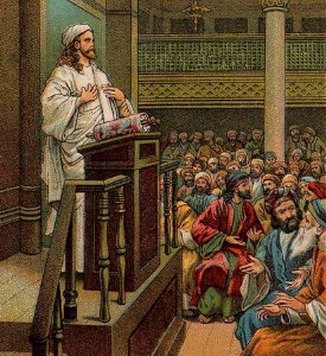
Authority may be granted, but how is it recognized? Particularly in matters of faith? God's promise of a prophet in Deuteronomy and Jesus' casting out an unclean spirit in a synagogue in Mark lead us toward some answers.
You're authorized to do all kinds of things, like use a debit card because the PIN code gives you authority. The PIN code verifies that you're an authorized user. Verifying that one has the authority can be straightforward, but in the case of sacred authority, verification looks different.
The passage from Deuteronomy comes as Moses is about to pass out of the picture and a new generation will need to lead God's people into the Promised Land. God promises to raise up a prophet like Moses. The injunctions against those who would pretend to have sacred authority or who abuse sacred authority are harsh and unequivocal.
The one with sacred authority will be known by how aligned they are with God's activities and purposes in the world. The belief is that if they're aligned, then the words of the prophet are true and sacred. If not, they aren't.
We get evidence of this in Mark's typically terse, fast-paced account of Jesus in the synagogue. While preaching - with authority! - an unclean spirit cries out in apparent agony from hearing the word from the Holy One of God.
The whole setting needs to be examined and much extrapolated from Mark's account. It's clear indication in the beginning of Mark's account of Jesus' ministry that this ministry will be confronting the religious establishment with sacred authority.
See how this works out in the sermon video below, and with the downloads below the video panel.
You're authorized to do all kinds of things, like use a debit card because the PIN code gives you authority. The PIN code verifies that you're an authorized user. Verifying that one has the authority can be straightforward, but in the case of sacred authority, verification looks different.
The passage from Deuteronomy comes as Moses is about to pass out of the picture and a new generation will need to lead God's people into the Promised Land. God promises to raise up a prophet like Moses. The injunctions against those who would pretend to have sacred authority or who abuse sacred authority are harsh and unequivocal.
The one with sacred authority will be known by how aligned they are with God's activities and purposes in the world. The belief is that if they're aligned, then the words of the prophet are true and sacred. If not, they aren't.
We get evidence of this in Mark's typically terse, fast-paced account of Jesus in the synagogue. While preaching - with authority! - an unclean spirit cries out in apparent agony from hearing the word from the Holy One of God.
The whole setting needs to be examined and much extrapolated from Mark's account. It's clear indication in the beginning of Mark's account of Jesus' ministry that this ministry will be confronting the religious establishment with sacred authority.
See how this works out in the sermon video below, and with the downloads below the video panel.
| 01-28-18-ff-answers.pdf |
| 01-28-18-the_address_of_sacred_authority.pdf |
